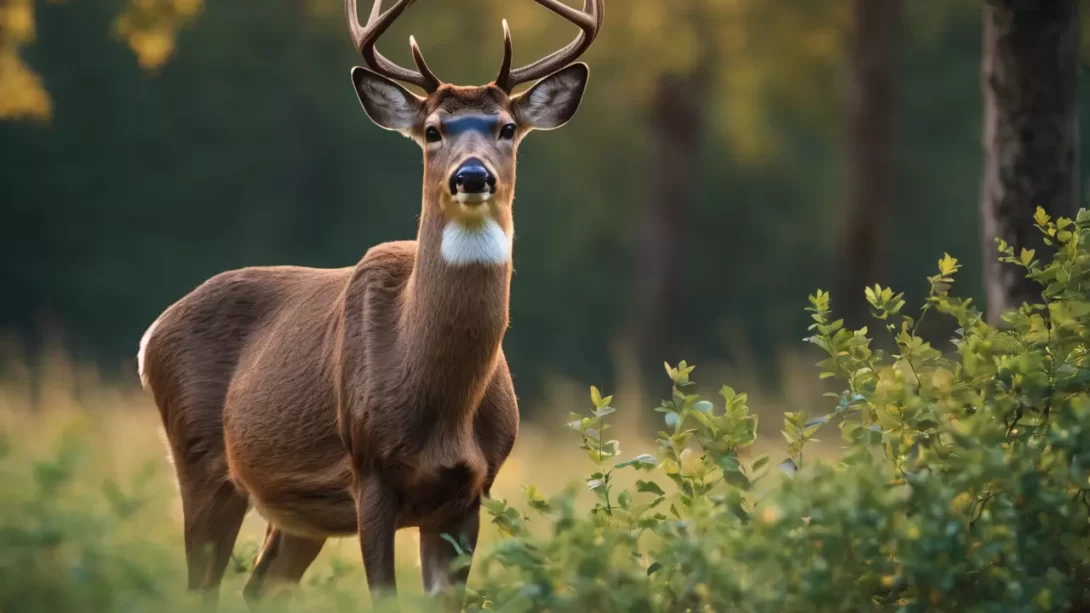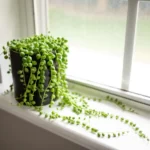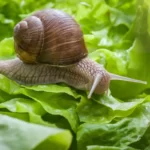Blueberry bushes are a cherished addition to many home gardens, valued for their delicious fruit and ornamental beauty. However, gardeners often face challenges with wildlife, particularly deer, which are known to graze on a variety of garden plants. Understanding the feeding habits of deer is crucial for those looking to protect their blueberry bushes and ensure a bountiful harvest.
Deer and Blueberry Bushes: A Potential Problem
Deer are known to be versatile feeders, and unfortunately for gardeners, blueberry bushes can fall victim to their appetites. The tender leaves, shoots, and berries of blueberry bushes can be particularly attractive to deer, especially in areas where natural food sources are limited. While deer may not always target blueberry bushes first, they can become a food source for deer under certain conditions.
Factors Influencing Deer’s Attraction to Blueberry Bushes
The likelihood of deer eating blueberry bushes can depend on several factors:
- Seasonal Diet Changes: Deer change their diet based on the season. During spring and summer, they are more likely to eat a variety of greens, which can include the leaves and tender shoots of blueberry bushes.
- Food Scarcity: In periods of food scarcity, such as during a harsh winter or a drought, deer are more likely to venture into gardens in search of food, potentially targeting blueberry bushes.
- Environmental Conditions: The local environment plays a significant role in deer behavior. In areas with fewer natural food sources, deer might be more inclined to feed on garden plants.
Protecting Blueberry Bushes from Deer
Fencing and Barrier Solutions
One of the most effective ways to keep deer away from blueberry bushes is to use physical barriers. A fence around the garden, ideally 8 feet tall or higher, can significantly reduce the chances of deer entering the area. For smaller gardens or individual bushes, using netting or cages can provide adequate protection. It’s crucial to ensure that these barriers are properly installed and maintained to prevent any gaps that deer could exploit.
The Use of Deer Repellents
In addition to physical barriers, deer repellents can be a useful tool. These products are designed to deter deer through unpleasant scents or tastes. Options include commercial repellents, homemade sprays using ingredients like garlic or hot pepper, and even soap bars hung near the bushes. While repellents can be effective, they often need regular reapplication, especially after rain, and their effectiveness can vary depending on the local deer population.
Cultural Practices to Deter Deer
Altering gardening practices can also help protect blueberry bushes. This includes avoiding the use of fragrant fertilizers that might attract deer, keeping the garden area clean to reduce hiding spots, and planting blueberry bushes close to the house or in areas of high human activity, as deer are generally cautious creatures.
Companion Planting and Alternative Strategies
Companion planting can serve as a natural deterrent to deer. Surrounding blueberry bushes with plants that are unappealing to deer can help mask their presence. Some effective deer-resistant plants include lavender, marigolds, and thorny bushes. These plants can create a natural barrier that makes it less likely for deer to reach the blueberries.
Designing a garden layout that minimizes deer attraction is another strategic approach. Placing taller, deer-resistant plants on the garden’s perimeter can act as a first line of defense. Creating layers of planting, with the most vulnerable plants like blueberry bushes in the center, can also help.
Conclusion
Deer can pose a significant challenge to gardeners, particularly those growing blueberry bushes. These animals, with their adaptable diets, may turn to blueberry bushes as a food source, especially in times of scarcity or in areas with limited natural vegetation. However, with strategic planning and proactive measures, it is possible to protect these valuable plants from deer.
Employing physical barriers like tall fencing or netting around blueberry bushes is one of the most reliable methods of protection. Additionally, the use of deer repellents, though requiring regular maintenance and reapplication, can offer an extra layer of defense. Gardeners should also consider altering their gardening practices, such as planting blueberry bushes near areas of high human activity or using non-fragrant fertilizers to make the area less attractive to deer.
Companion planting with deer-resistant plants can also be an effective strategy. By surrounding blueberry bushes with plants unappealing to deer, you can create a natural deterrent. Designing your garden with thoughtful layering, placing the most vulnerable plants at the center, can also help in minimizing deer damage.
In summary, while deer may be attracted to blueberry bushes, there are several effective strategies gardeners can use to protect their plants. Understanding deer behavior, combined with implementing physical, chemical, and cultural deterrents, can greatly reduce the likelihood of deer feasting on your blueberry bushes. With these measures in place, you can enjoy a fruitful harvest and a beautiful garden, coexisting peacefully with the local wildlife.



